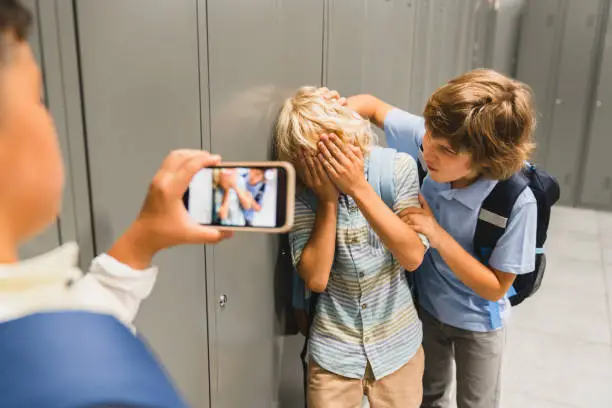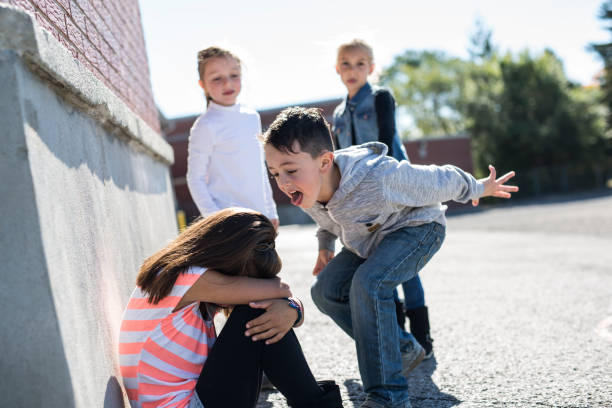Article by Jennifer E. Levy, Esq.

Suicide is the second leading cause of death for children between the ages of 10-14. Instances of horrific bullying on places like SnapChat, Instagram, and Tiktok happen all the time. We constantly hear about kids getting bullied in malls, at off-campus parties, and even at school-sponsored events. Sometimes, we get calls about kids getting harassed on video games like Fortnite and Minecraft. We have seen and heard about it all. But what exactly are bullying, harassment, and intimidation?
As defined by the Anti-Bullying Bill of Rights Act (ABR) to prevent and address HIB (Harassment, Intimidation, and Bullying), HIB is defined as any gesture, any written, verbal or physical act, or any electronic communication, whether it be one time or numerous occurrences that:
- It is reasonably considered to be motivated by any actual or perceived characteristic. This can include race, color, religion, ancestry, national origin, gender, sexual orientation, gender identity and expression, a mental, physical, or sensory disability, or any other distinguishing characteristic; AND
- Take place on school property, at a school-sponsored event, or off school grounds as stated in NJSA 18A: 37015.3 AND
- Substantially disrupts or interferes with the orderly operations of the school or the rights of other students AND THAT:
- A reasonable person should know, under the circumstances, will have the effect of physically or emotionally harming a student or damaging a student’s property, or placing a student in reasonable fear of physical or emotional harm to a person or damage to his property OR
- Has the effect of insulting or demeaning any student or group of students OR
- Creates a hostile educational environment for the student by interfering with a student’s education or by severely or pervasively causing psychological or emotional harm ot the student.
So does this mean if my kid is at a party and gets harassed, my kid has school-based protections?
Often yes. Let’s say a fellow schoolmate harassed the child about an actual or perceived characteristic (for example, if they are harassed about being overweight). This would also be harassment, especially if as a result of this, a child felt unsafe at school and developed severe anxiety about it.
What if my child’s peer threatens my child on Instagram or another social media app?
Often yes. If the child is being targeted because of an actual or perceived characteristic (even if it isn’t true) and the child becomes fearful, self-isolates, and is concerned about possible physical harm or is physically harmed, it is absolutely something that needs to be brought to the school’s attention.
What can you do about it as a parent if you suspect your child is being bullied?
If you believe a peer has bullied your child, you should notify school officials. Call and follow it up in writing, recapping precisely what you said. I recommend doing this as soon as possible, even if it is on the weekend (you can email the school and follow up with a phone call on Monday if it is over the weekend). You should report both behaviors and ask that the school investigate the situation following the ABR. I always recommend notifying the school principal since this starts the timeline for how quickly a school must legally act to investigate this incident (or series of incidents).
If the bullying is ongoing, work with your child to document all incidents. Never erase or alter anything. If a text message was sent or something was posted, get a screenshot of it. Keep it.
Once school staff has the report, they must report the information of suspected HIB the day it is received. The principal must then take appropriate action to ensure students are safe and to implement the Board of Education’s HIB procedures and policies. There are ten procedural steps the law requires schools to take when investigating a potential HIB incident.
While they are written in the law, many schools do not follow them. Most parents are unaware of the procedures that must be followed.
Does this mean the police are not involved?
No. Any time you believe someone has broken the law, you can contact the police immediately. I would especially recommend this if you are fearful of someone hurting your child physically or if someone has hurt your child physically. This is also true even if someone has used your child’s image inappropriately and unintentionally. If your child’s belongings have been stolen or damaged, or your child complains of inappropriate sexual contact or
the sharing of nude pictures, you should immediately contact the police.
Do these laws apply to public, charter, and private schools?
In the case of private schools, anti-bullying laws do not exist. However, severe teasing can mean the school violated its contractual obligations between parents and the school when it violates a school’s code of conduct (which is often the case). This is especially true if administrators fail to take actions to mitigate, deter, and prevent this from continuing.
These laws apply to public and charter schools. Other laws (like assault) apply to private schools. Your child still has rights.

What if what is happening to my child needs to be stopped but isn’t part of this law? Are there any other protections in place?
Yes. Anti-bullying laws do not protect against hazing. However, it can be a disorderly person’s offense or crime in the fourth degree. NJ anti-bullying laws do not always cover assault, but depending on the severity of it, it can be a criminal offense.
What else can you do if you need help?
If you are concerned that your district or school is not taking the necessary steps to protect your child from Harassment, Intimidation, and Bullying, you should contact Jennifer Levy at Raff and Raff. As a former principal and teacher, she knows how schools work and has seen issues like this firsthand. She can help you. Call today at (973) 742-1917 or email her at jenni@raffandraff.com to set up a consultation appointment. Do not let schools deny your child the right to feel safe. All children should be able to express themselves without fearing harassment, intimidation, and bullying.


